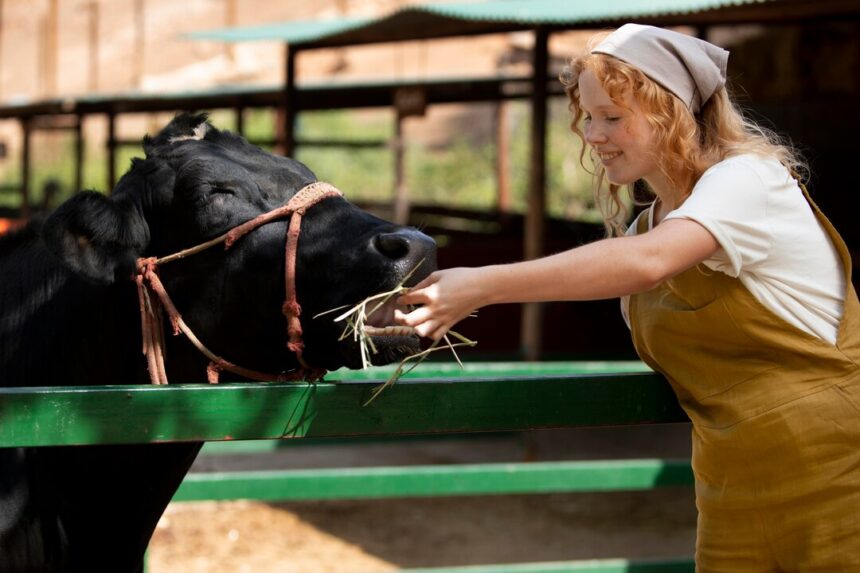Proper housing for pregnant livestock is essential to ensure the health and well-being of both the animals and their offspring. During pregnancy, livestock require special care and attention to support their changing nutritional needs, provide adequate space for movement, and minimize stress. In this article, we’ll discuss essential tips for properly housing pregnant livestock to create a comfortable and safe environment for them to thrive.
- Provide Ample Space:
One of the most critical factors in housing pregnant livestock is providing enough space for them to move comfortably. Overcrowding can lead to stress, increased risk of injury, and competition for resources. Ensure that pregnant animals have access to spacious pens or paddocks where they can move freely without feeling confined. Adequate space also allows for natural social interactions and reduces the likelihood of aggressive behavior among animals. - Ensure Proper Ventilation:
Good ventilation is essential for maintaining air quality and minimizing respiratory issues in pregnant livestock. Proper airflow helps remove moisture, odors, and harmful gases from the barn or housing facility. Ensure adequate ventilation by installing vents, windows, or fans to promote air circulation throughout the space. Avoid overcrowding and maintain cleanliness to prevent the buildup of ammonia and other pollutants that can affect respiratory health. - Provide Clean and Comfortable Bedding:
Clean and comfortable bedding is essential for pregnant livestock to rest and nest comfortably. Use clean straw, hay, wood shavings, or other suitable bedding materials to provide a soft and dry surface for lying down. Regularly clean and replace bedding to maintain hygiene and prevent the spread of diseases. Adequate bedding also helps insulate animals from cold temperatures and provides cushioning to reduce the risk of injuries. - Ensure Access to Fresh Water and Nutritious Feed:
Pregnant livestock have increased nutritional requirements to support fetal growth and development. Provide pregnant animals with access to fresh, clean water at all times to prevent dehydration and support proper digestion. Offer high-quality feed that is appropriate for their stage of pregnancy, ensuring a balanced diet rich in essential nutrients, vitamins, and minerals. Consult with a veterinarian or nutritionist to develop a feeding plan tailored to the specific needs of pregnant livestock. - Minimize Stressors:
Stress can have detrimental effects on pregnant livestock, leading to decreased appetite, weight loss, and compromised immune function. Minimize stressors in the environment by providing a quiet and calm atmosphere for pregnant animals. Avoid sudden changes in routine, loud noises, overcrowding, and aggressive interactions with other animals. Handle pregnant livestock gently and avoid unnecessary disturbances to promote a sense of security and well-being. - Provide Adequate Shelter and Protection:
Pregnant livestock require shelter from the elements to protect them from extreme weather conditions such as heat, cold, wind, and rain. Ensure that housing facilities provide adequate shelter, insulation, and protection from drafts to keep animals comfortable and healthy. Monitor weather forecasts and make adjustments to housing arrangements as needed to ensure the safety and well-being of pregnant livestock and their offspring.
Proper housing for pregnant livestock is essential for ensuring their health, comfort, and safety during this critical period. By providing ample space, proper ventilation, clean bedding, nutritious feed, minimizing stressors, and offering adequate shelter and protection, farmers can create an optimal environment for pregnant animals to thrive. Taking proactive measures to address the unique needs of pregnant livestock contributes to healthier pregnancies, successful births, and ultimately, the well-being of the entire herd.
Join 'Farmers Mag' WhatsApp Channel
Get the latest Farming news and tips delivered straight to your WhatsApp
CLICK HERE TO JOIN






